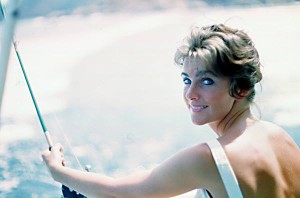I just finished revising the second draft of my next novel, which means I now have Draft #3 to print out. I’m doing that as I write this post. The whole process started back in October of 2013. Draft #1 clocked in at about 160,000 words (630 pages). Revisions for Draft #2 in December of last year shrank the book to 140,000 words. I was surprised at how many unnecessary sentences I’d written and how many extended metaphors showed up that a reader didn’t really need.
Draft #3 was an extraordinary process. My goal was essentially to lop 60,000 words off the beast. I’d gotten a fair amount of input from a few First Readers. In particular, several poet colleagues were concerned about the number of sub-plots I was offering up. They wanted focus and brevity. Poets!
I took a few weeks to think through their advice. I also got an interesting letter from a prospective agent saying, in essence, “I can’t take a look at a coming-of-age novel that is 140,000 words long.” Agents!
I began work on Draft #3 at the beginning of February. I finished that process last week (February 22). Music for New People is now a 90,000 word novel — 330 pages long. It may be possible to cut more, but at the moment I find it hard to imagine how I can do that without eliminating very real and important pieces of the story. I have indeed eliminated most of the sub-plotting. I continue to be amazed at how much unnecessary storytelling and description I found as I went through this last editing process. Real editing for writers is not about line work and brevity, it’s a strange supra-objective reading experience where you get yourself to become another person — a sort of generalized ghost reader unafraid to say, “What the fuck are you doing?” over and over again. It’s not easy. I found I could stay in that mindset (dimension?) for about two hours at a shot, then I needed break. I’d realize I was slipping out of the role. I’d begin to appreciate what I was reading instead of being overtly critical. I wonder if it ever behooves a writer to appreciate what they have committed to the page.
Five years ago, I might have told you there was no chance I’d ever write a young adult novel. I’m still not sure how it happened. Music for New People is told in the first person past tense by a 15-year-old high school girl named Ivy Scattergood. She is remembering the previous summer — a summer she spent growing up faster than she new was possible.
About three-and-a-half years ago I decided to read stuff I knew I’d done a poor job paying attention to as I taught myself to be a decent writer. That included tracking down quality women’s fiction and popular young adult stories, especially YA written by women. I’ve been reading a lot of Toni Morrison, Elena Ferrante, Joy Williams, Lucia Berlin, Lydia Davis, Mary Gaitskill, Amy Hempel, and Renata Adler of late. I also read the entire Hunger Games trilogy and tried hard to tackle Twilight and Divergent. In addition, I managed to read a fair amount of Amanda Hocking’s early indie paranormal romance work (before she went commercial) way back in 2011 and 2012.
Why was I doing this? To take me out of my comfort zone, partly. I’ve read a shitload of male writers in my life. My tastes run the gamut — John Cheever and Barry Hannah to Don DeLillo and V.S. Naipaul to Robert Ludlum and John le Carré. Sadly, the more male fiction I read, the less easy it is to feel like men are depicted properly (and women) by even the great male writers like Dostoevsky or Faulkner. Complex emotion is one of the main aspects of real life, but that seems quite difficult for men to bring directly into their stories. I think of this as the Hemingway Effect. Dostoevsky may have preceded old Ernest by fifty years or so, and Faulkner was basically a contemporary, but the “Effect” is simply the need to depict men as somehow unable to have complex emotions, always in control, only philosophical about life, driven by ideas and gallant macho behavior. This type of character is often destroyed by his own idealized mentality (going all the way back to Odysseus, right?). I think a lot of folks see this now. But the approach still hasn’t really shifted meaningfully yet. There’s a lot of that on TV still as well, but in many ways stories on screens and even on the stage seem to be more capable of letting men express real emotion.
It’s the Hemingway Effect because as every wannabe teen boy writer knows, Papa’s stories are the best. They’re untouchable in depicting the male ideal. They have a simplicity and purity about them that is almost magic. The only problem is that they have given rise to nearly a century of men lying to each other and the world about how un-diverse and uncomplicated male emotion really is. This lying inevitably produced the ironic, satirical, laughing-at-the-world, making fun of everything, show how stupid and insipid modern (post-modern) life can be.
Take one dose of Hemingway and one dose of Kafka and what have you got? Most male-written American fiction of the last 80 – 90 years. All that effort to lie to ourselves when we know quite well that life is about feeling things and expressing those feelings to others — those we love, those we hate, those we work with, our neighbors, children, etc.

If you’ve read the famous 1993 interview/discussion between Larry McCaffery and David Foster Wallace for the summer 1993 issue of the Review of Contemporary Fiction, I think this question of emotion is at the heart of DFW’s concerns when he says to McCaffery:
“Really good fiction could have as dark a worldview as it wished, but it’d find a way both to depict this world and to illuminate the possibilities for being alive and human in it.”
I, personally, have been terribly dissatisfied by how male consciousness is depicted in literature ever since I read Nabokov’s Lolita some twenty years ago or so. I wasn’t dissatisfied with how men think in real life, mind you, just in all these supposedly famous and important novels written about men. I understand that Vlad was trying to be ironic or funny or maybe even cynical or all of the above and more, but I found little enjoyment reading a story through the eyes of a pathetic psycho pedophile, especially in the way the story was written. I supposed I wouldn’t be that bothered, were this a little lumpen post-modern fairly tale, but Lolita is one of the most culturally defining books of the 20th century and has been twisted into at least three separate films with references bubbling up throughout modern Western culture since the book was published in 1955. It’s supposed to be funny. It’s not. It’s as pathetic a depiction of heterosexual male consciousness as anything I’ve ever written. Why is it so hard for us to find books about men that are emotionally honest.
It took me another 15+ years to figure out that maybe there was an answer to this problem right under my nose. I decided maybe I should see how women who have mastered literary writing manage telling stories about emotion. I also had a suspicion that YA novels about young women, even schlocky ones, might well have something to teach me about how to make emotion central to plot, even make emotion a sort of character that drives plot. That’s just really fucking hard to find in so many great books by men — from Dostoevsky’s Crime and Punishment to Kerouac’s On the Road and beyond (you may wish to argue that one, which is fine).
At best, male writers often (not always) lock the emotional reality of male characters in little rooms only the reader gets to see. Often these rooms are poorly lit, low-ceilinged, windowless, and depressing. This isn’t to say men in the real world approach life like this. It may well be that the dudes we think of as masters of fiction were often struggling with what it actually meant to be able to express themselves in their real life openly, fearlessly, and intelligently. Or it may be that they took it upon themselves to write about the very real problem that many men have of being emotionally honest. Certainly a character like Rabbit Angstrom (Updike) or Augie March (Bellow) would have done much better for himself in life if he’d had the sense that understanding how you truly feel about things is the key to happiness and success — and the way to stay out of trouble and keep things from just happening to you. Where else does tragedy come from than ignorance and uncontrollable urges we don’t really understand?

Whatever the case, I have found quite the approach to storytelling in stories by women like Berlin, Ferrante, Morrison, Adler, Williams, etc. Reading so many great stories by and about women also made me think quite a lot about gender in fiction and how gender affects literary perception. That led me to questions about gender identity in general in society and inside the head of individuals. It also gave me pause to think about stereotyping and predictability in stories, and how fiction as an art form uses the familiar to go beyond the familiar.
In the middle of all that, I also read for the first time ever To Kill a Mockingbird, and re-read Catcher in the Rye. I was struck deeply by how both Scout Finch and Holden Caulfield are fearless heroes with immense abilities to confront the emotional reality of life — both their own and the greater Life they live in. I could see quite well the importance of YA fiction for us all and, with respect to fiction’s goal of depicting complex emotional truth to the reader, why there isn’t even a contest, in my opinion, between a book like Catcher in the Rye and the most important serious adult-oriented fiction out there. You can read some of my thoughts on YA fiction in a column I wrote for Talking Writing magazine called, “The YA Conspiracy — and How I Grew Up.”
This is all a long way of saying, somehow, someway, that I walked up to my study one morning in late October of 2013 with the beginning line of a story in my head. As I typed that line onto my laptop’s screen, a whole saga flooded my brain and wouldn’t leave me alone.
The narrator’s name came out of the blue — Ivy Scattergood — as did her cousin’s — Rita Gomez. The two of them seemed as real as anyone I’ve ever known in my life. The central dilemmas of their story were clear to me as well: What does it mean to be a girl? Or a boy? What is going on with us as teenagers that pushes us so hard to deal with our identities? What is “an individual?” And what role do families play in requiring each other to behave in certain ways?
I was worried about thinking I could “get away with” writing a story in the voice of a 15-year-old girl. There’s a lot of gender ownership going on in the literary world these days (maybe there always has been). Our society also seems to be suffering from oddly extreme reflexive intolerance and no desire to try to understand different points of view.
Worrying about whether you have a right to tell a story in any character’s voice is the kiss of death for a writer. I have also been working for the past five years on a story about a highly sexual middle-aged man living in suburban America. Also another one about a woman convinced there’s more to love than we know, tortured and destroyed by her desire to find superhuman passion in suburban America. It isn’t easy writing about people who are fundamentally different from you. At the same time, it’s much more fun to tell a story in the voice of a 15-year-old tomboy or a 45-year-old psycho-superwoman.
In the end, I’m not sure if Music for New People is really a YA novel for 14 – 18 year olds. Modern Dionysian teenage shenanigans are limited. There’s no real bad boy on center stage, or truly angsty dudes, or even a cynical douche-bag. The story was written in part as an antidote to the dark, dystopian, somewhat depressing stories we encounter in the teen fiction world of today. Also, you can forget the stereotype romances that seem to appeal to young readers (although there is romance).
I’m not sure about YA, though, mostly because it seems in many ways this story may appeal more to adults, especially parents of teenagers. As much as the three Scattergood siblings are front and center in this story (along with their cousin Rita and super awesome stud Bailey Cooper), the four adults in the novel also have huge roles to play and maybe learn as much as their offspring in the end.
I’m pleased, then, with the 330-page novel I’ve got printed out next to me (that’s how long it took to write this 2,100 word post). It’s all about emotion and identity. The next step is to find an agent. The step after that, obviously, is to find a publisher. You can track down bits of the manuscript online if you’d like to read a sample of what I’ve been talking about here. A rough draft of the first chapter is also logged into the “Work-in-Progress” section of this blog (see menu at the top of the page).







[…] Why I Wrote a Novel by a Girl: When a Dude Figures Out the Power of Emotion in Literature […]